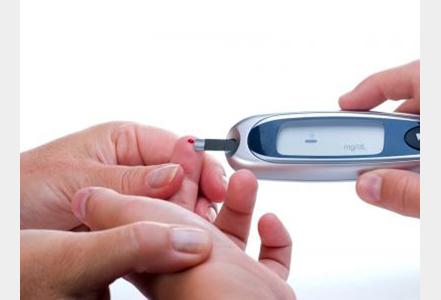VA: Mobile Is 'Value-Added' To Health Programs
Agency uses mobile apps and other initiatives to connect veterans and clinicians to medical services and data.
September 8, 2014


10 Technologies Changing Diabetes Care
10 Technologies Changing Diabetes Care (Click image for larger view and slideshow.)
The Department of Veterans Affairs (VA) is moving ahead with an ambitious effort to provide mobile wireless services to both veterans and the clinical staff who serve them.
Under a set of interconnected programs, veterans can use a variety of applications to access their medical records, to request services such as prescriptions, and to schedule appointments. VA is issuing tablet computers and smartphones to clinicians to allow them to access patient records while making their rounds and to collect patient data directly into the department's electronic health records system.
The VA's mobile health programs are built around three categories: connecting veterans to their caregivers, providing patients with the tools to access their medical records and request health services, and allowing clinicians to collect health data from patients, explained Dr. Neil Evans, co-director of the VA's Veterans Health Administration.
[Security on the go: NIST Drafts Mobile App Security Guidelines.]
To connect patients and medical personnel, the VA created a series of applications and services to help patients manage their medical conditions, Evans said at a recent conference on federal-sector mobility. An example is the PTSD Coach app, which helps patients track symptoms associated with the aftermath of trauma. These self-care capabilities mesh with the second category of allowing veterans access to their medical records and a range of services, such as arranging appointments and filling out prescriptions with their mobile devices.
The final category focuses on allowing clinicians to collect data from veterans to better manage their care. For example, Evans noted that a veteran's diabetes data is traditionally collected in small notebooks, which are then presented to VA medical staff. This is not a very efficient process, he explained, adding that a mobile analysis tool allows clinicians to receive regular data on patient blood-sugar levels instead of relying on a patient being physically present at a VA clinic to hand in their notebook.
Another consideration behind the program was providing healthcare providers with better tools to engage with patients. The VA's Mobile Health Provider pilot program is deploying 10,000 tablet computers and smartphones to 19 VA facilities across the country to enable clinicians to access medical records on the move and to make better on-the-spot decisions, Evans said. The Mobile Health Provider program began with several small pilot programs in 2011 and 2012 designed to give clinicians and patients mobile tools to access medical records and services. It was greatly expanded in 2013 and is currently being deployed, he said.
Security is another key consideration. The department does not differentiate between mobile and IT security, Evans said. Security was worked into the patient-centric Connected Health program (which also includes the Mobile Health Provider initiative) from the very beginning, he said. The program uses encryption to protect patient medical data while it is in transit and while it resides on clinician medical devices. When veterans access their data, it never resides on their devices, staying securely in the VA's servers. A larger challenge will be training medical staff to adopt secure handling practices for their mobile devices and take care not to lose them, he said.
However, Evans noted that adapting mobile devices to the VA's existing enterprise was not a "black and white" issue because there are a variety of users with different needs across the department. One major goal is providing doctors with more mobile access to patient medical data when they are on call. Another group that actively embraced mobile use is the VA's homeless outreach staff, who need data access while in the field. "Mobile is a value-added to your existing systems," he said.
Our new survey shows fed agencies focusing more on security, as they should, but they're still behind the times with cloud and overall innovation. Get the new IT Priorities In Order? issue of InformationWeek Government today.
You May Also Like




